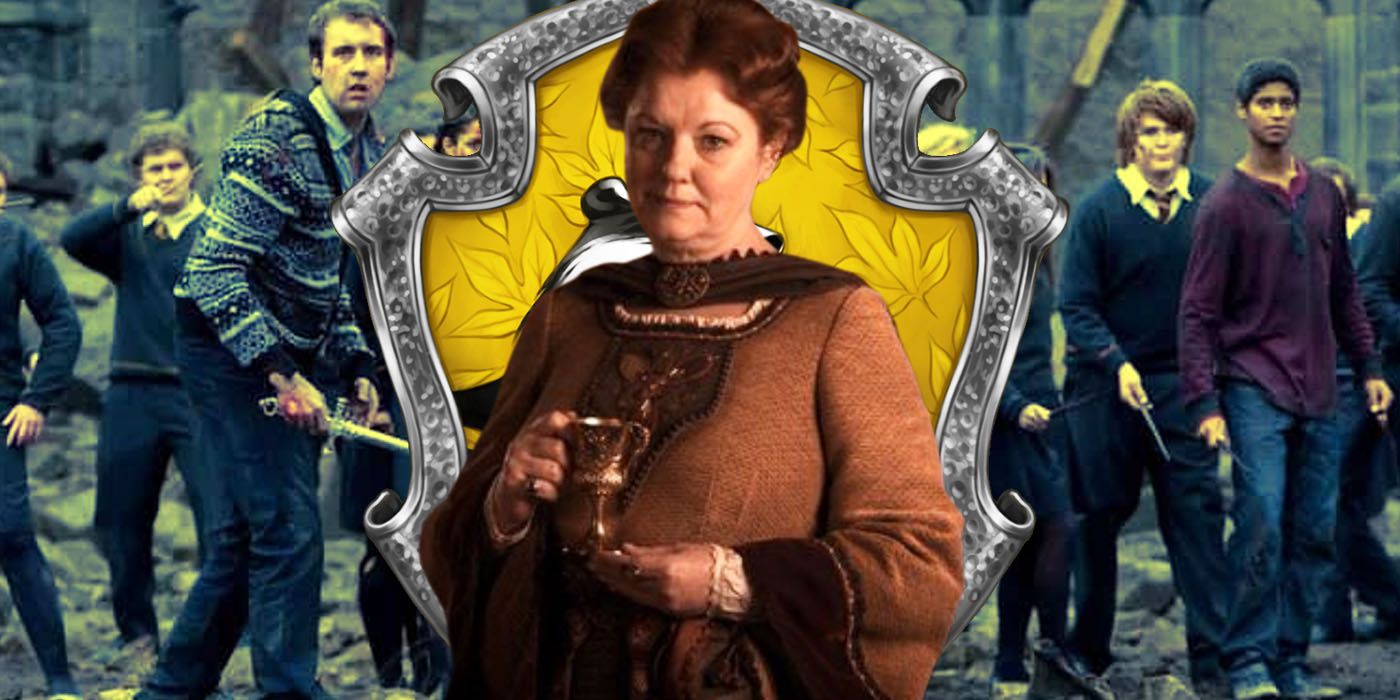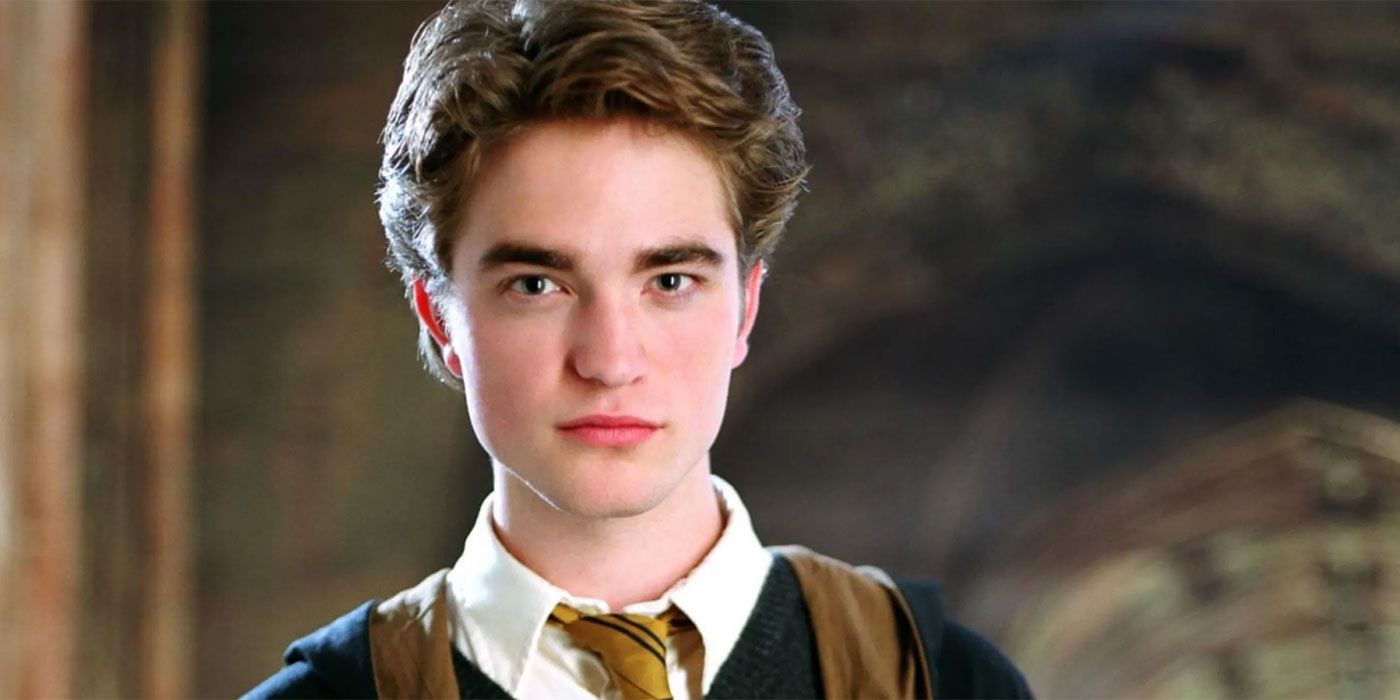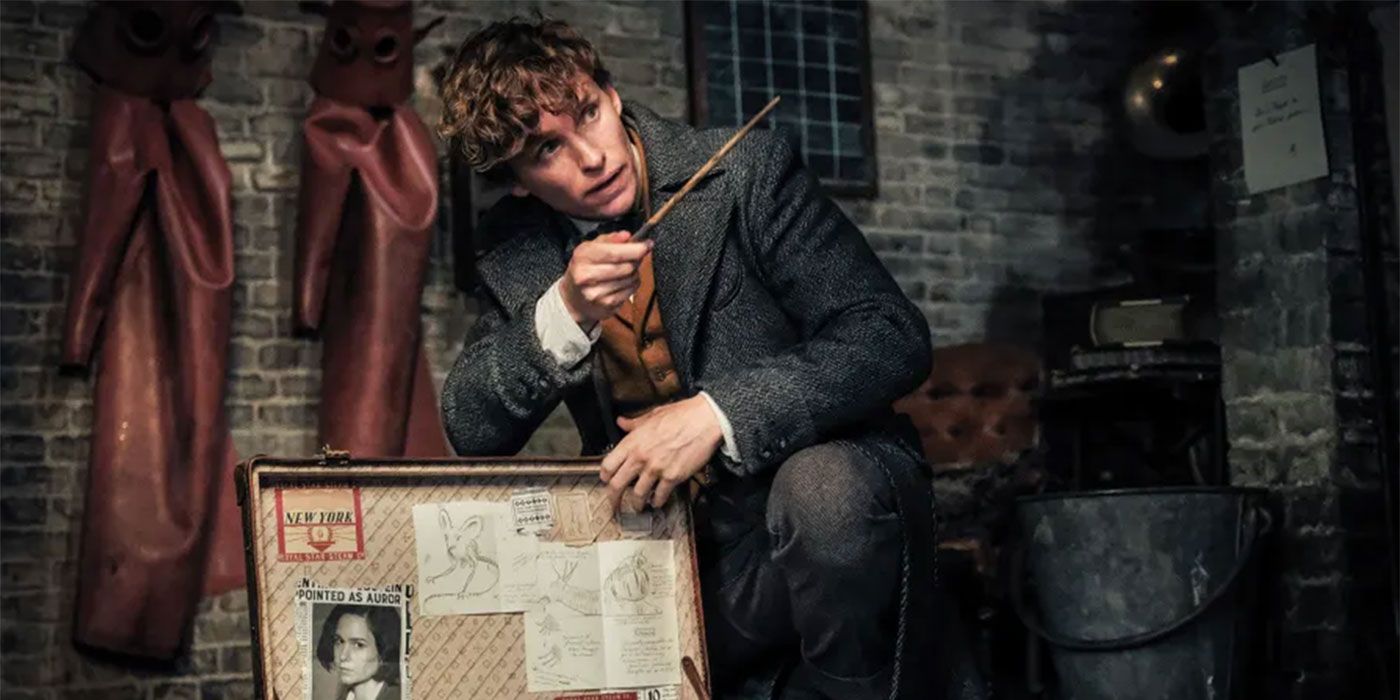Within the Wizarding World of Harry Potter, every Hogwarts house has its own set of defining traits. Whether it be bravery, ambition or intelligence, each house has its own appeal. Of the four, it was Hufflepuff that struggled to make much of an impression and felt relatively underrepresented in the original Harry Potter series. The few students fans do get to know, such as Cedric Diggory, Nymphadora Tonks, and Pomona Sprout, show that it's not just the house for students who fail to fit into any of the other three, Hufflepuff might actually be the most admirable and best house of all.
Fortunately, later additions to the Harry Potter franchise helped rectify Hufflepuff's unwarranted reputation, with the Fantastic Beasts series introducing both Newt and Theseus Scamander, both Hufflepuffs who were crucial allies to Dumbledore in his fight against the dark wizard Gellert Grindelwald. The traits Hufflepuffs are associated with are loyalty, honesty, fairness and acceptance. Combined with their strong moral compasses, it's no surprise that the house rarely produced a dark wizard.
Hufflepuff Was Underrepresented in the Harry Potter Series
During the Harry Potter series, most of the main cast was sorted into either Gryffindor or Slytherin. It was also established that the two houses had a fierce rivalry that carried onto the Quidditch pitch, which was personified most prominently by Harry vs. Malfoy. Yet, there was barely anything noteworthy about the Hufflepuff team. In the 1991-1992 school year, they were defeated in five minutes by the Gryffindor team after Harry caught the Golden Snitch. Although they did win the following year, Harry being accosted by the Dementors played a factor in their victory.
Additionally, the fact that most of the Hufflepuffs are not boastful also plays into the house being rather underrepresented. The qualities of the house itself are honesty, hard work, humility and friendliness. While these are all admirable traits, they initially don't appear ideal for a noteworthy protagonist or even a major character. This, along with Hufflepuff's inclusion of less talented wizards and witches, leads to the house not being taken as seriously as their "more accomplished" brethren.
Why Hufflepuff Is the Best House in Harry Potter
While Hufflepuff's more subservient traits paint it as more of a subordinate than a leader, the truth is that Hufflepuff's house traits are actually more important than those of the other three. Loyalty, honesty, dedication and friendliness are all essential traits when empathizing and cooperating with others. The ability to make friends and be honest with others is arguably a better trait to be a leader than just bravery or ambition. There have been many instances of certain members of Gryffindor, including James Potter, being bullies instead of someone to look up to.
This is further exemplified by Hufflepuff producing many great wizards. For example, the late Cedric Diggory was a Seeker for the Hufflepuff Quidditch team and even managed to catch the Golden Snitch, which secured their victory over Gryffindor in the 1993-1994 school year. Diggory was also an exceptional athlete, a Triwizard Tournament champion and a teenage heartthrob with the girls. Additionally, Fantastic Beasts' protagonist Newt Scamander was an acclaimed magizoologist who, along with his brother and fellow Hufflepuff, Theseus, fought against Gellert Grindelwald. Speaking of dark wizards, Hufflepuff also has produced the least number of dark wizards due to its members not wanting to show off or take unnecessary risks. Despite initial impressions in Harry Potter, it's no doubt that Hufflepuff should not at all be overlooked for the quality of witches and wizards it produces.



